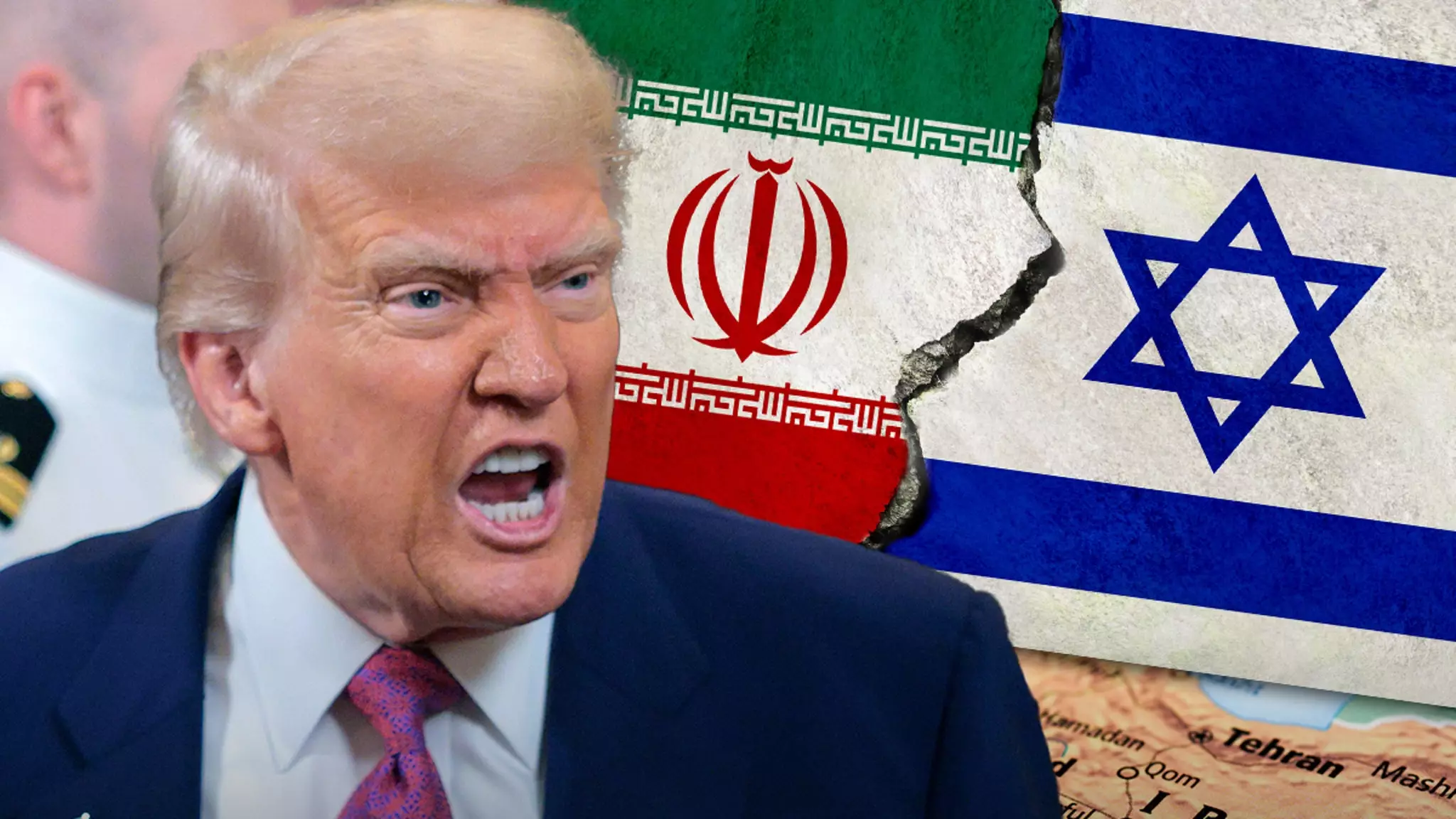In a remarkable display of unrestrained candor, former President Donald Trump unleashed a barrage of criticism against Iran and Israel following a brief ceasefire that quickly collapsed. His comments emphasize a troubling pattern in Middle Eastern diplomacy, where fragile agreements can dissolve at a moment’s notice. Trump’s incredulity at the chaos gripping the two nations reveals not only his unique approach to foreign policy but also the complexity of the geopolitical landscape in that region. How can two nations embroiled in decades of conflict still be so ignorant of the implications of their actions?
Trump’s Direct Approach: A Double-Edged Sword
From his post on Truth Social, Trump made it abundantly clear that he disapproved of Israel’s recent military actions, characterizing their bombing campaigns as excessive. His blunt admonishment—”bring your pilots home, now”—might resonate with those frustrated by repeated cycles of violence, yet it also raises questions about the effectiveness of his blunt rhetoric in high-stakes diplomacy. It’s worth noting that such a direct approach lacks the nuanced understanding often required in international relations, a controversial perspective that could alienate allies and embolden adversaries.
Simultaneously, Trump’s attack on CNN and MSNBC highlights his longstanding animosity toward mainstream media. His call for apologies from these networks for their reporting on U.S. military actions serves as a reminder that in Trump’s world, the messenger is often just as important as the message. This paves a dangerous path where questioning the narrative becomes synonymous with being ‘gutless’—a term Trump wielded with intention.
The Troubling Reality of Military Power Plays
Despite Trump’s claims of a “magnificent success” after U.S. airstrikes on Iranian nuclear sites, the implications of such military actions cannot be understated. The idea that a “12-day war” could conclude with an unequivocal victory seems overly simplistic and ignores the deeply entrenched issues at play. Trump’s announcement lacks formal acknowledgment from Iranian officials, suggesting that the reality on the ground is still chaotic and unpredictable.
In this context, the actions taken by both Israel and Iranian forces following Trump’s declaration demonstrate a dangerous game of chicken, where each side appears willing to escalate tensions rather than seek peaceful resolutions. Trump’s comments reflect an unsettling truth: the cycle of aggression is fueled by a lack of understanding about how peace is forged, often through concessions and dialogue rather than bomb-dropping.
The Broader Implications for Foreign Policy
The rhetoric exchanged in this fragile moment brings into sharp focus the broader implications for U.S. foreign policy. Trump’s divisive approach might energize a particular audience, but it risks alienating critical international partners who uphold the delicate balance of power. With rising tensions, it begs the question: can America maintain its role as a mediator, or are we witnessing the slow unraveling of its influence in the Middle East? The difficulty in establishing peace is not just a problem for Israel and Iran, but for an America navigating a complex web of alliances and rivalries.
As Trump and the nations at the heart of the conflict continue to grapple with their strategies, one thing remains clear: the fragile peace is at the mercy of impulsive decisions and brutish rhetoric that often oversimplifies intricate historical grievances. The road forward remains uncertain, contingent on choices that could redefine not only the future of Iran and Israel but also reshape the United States’ position in a dynamically changing world.

